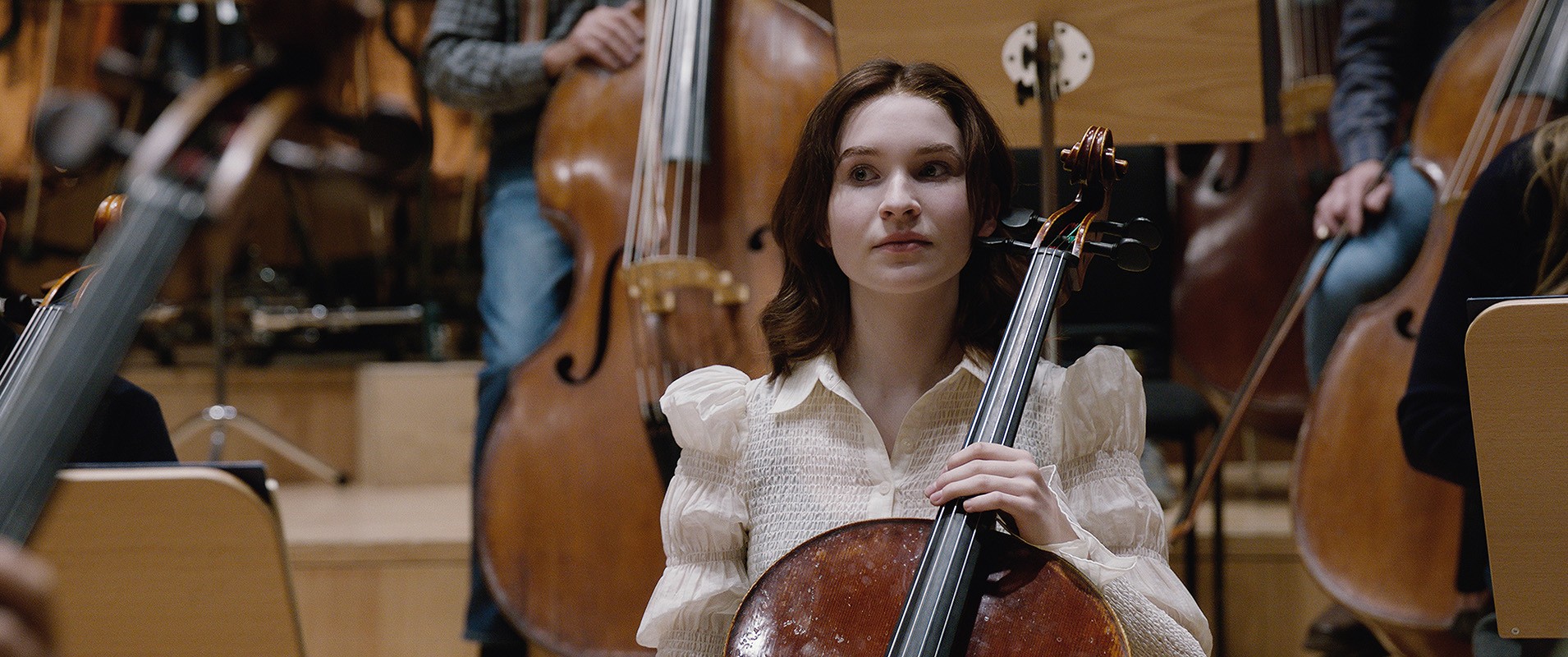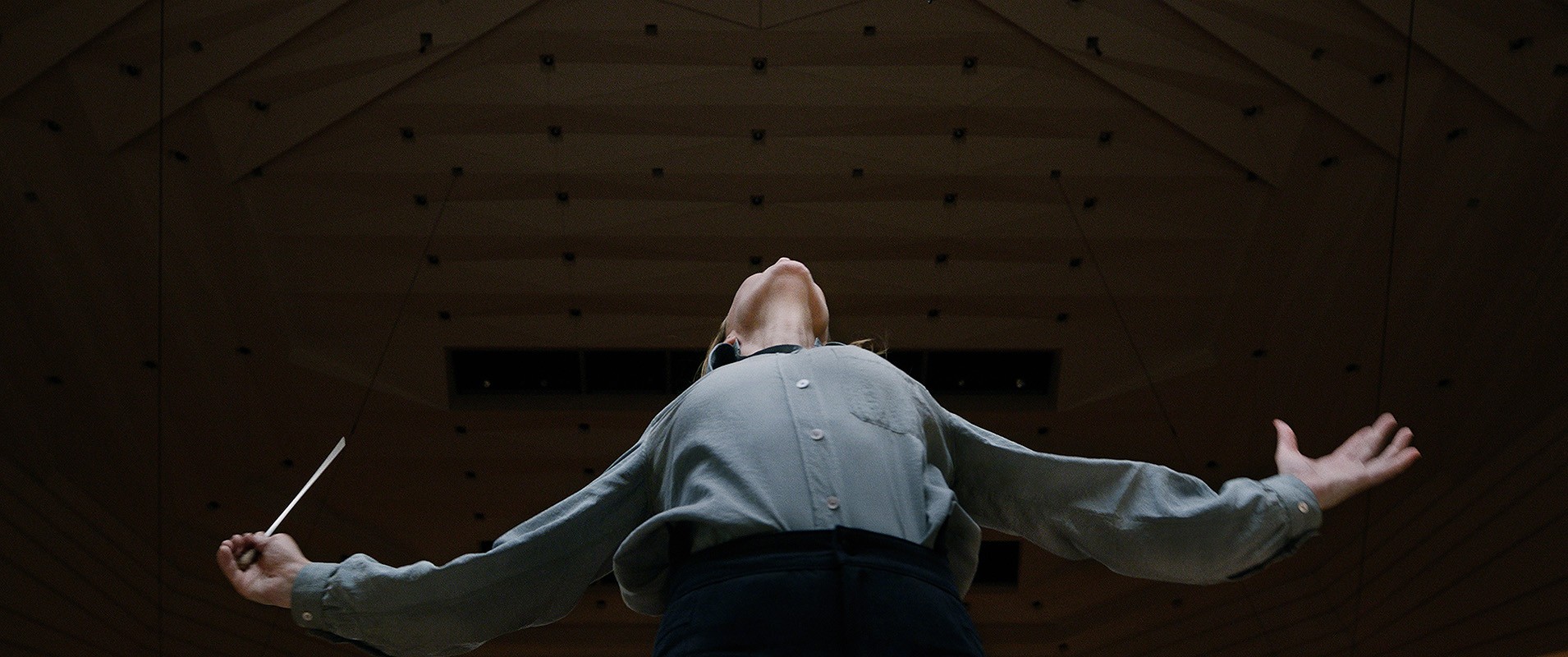‘Tár’ Review: Cate Blanchett Conducts Her Way Into an Oscar
There is really nothing conventional about Todd Field’s Tár. From splitting the credits in two, leaving only the actors and the music pieces for the end of the film, to naming it as if it were a biopic of a real-life musician, Field and Cate Blanchett knew exactly what they were doing here, and they went for broke on it.
Blanchett, in the performance of her career, plays Lydia Tár, widely acclaimed as the greatest living composer today and one of 15 people to win an EGOT (obviously this was made before Viola Davis’ addition at this year’s Grammys). She is the main conductor of the Berlin Philharmonic and is in the midst of preparing for the recording of Mahler’s Fifth Symphony, but soon, her life will begin to crumble. Similar to how Empire of Light and The Fabelmans are two sides of the same coin this awards season, it is remarkable how well Tár plays with She Said — the latter examines the #MeToo movement from the perspective of the victims, while the former takes the other side of the table.
Lydia Tár, who lives with her partner (Sharon, played by Nina Hoss) and their adoptive daughter Petra (Mila Bogojevic), is the personification of power and its corruption of the soul. She’s on top of the world, and nobody is bringing her down — from up there, she judges everyone and moves the people around her as chess pieces serving her larger ambitions. When the orchestra’s second conductor makes a seemingly innocent suggestion, she decides to take the step and “rotate him out.” She disregards the loyalty shown by her own assistant Francesca (Noémie Merlant) over many years, and when a new, attractive young Russian cellist (Olga, played by Sophie Kauer) auditions for the string section, she practically forgets about her partner.
Tár idolizes every maestro that came before her and embodies every sense of their personalities, from their ego to their ruthlessness with the people that stand in her way. She is not a likable individual, and through the course of the film, we see her ruin more than one life — until this comes back to bite her. The film, in one of its many layers, explores today’s cancel culture and the power dynamics in the workplace that happen when a world-class icon can’t see beyond the reach of her arm, and interestingly, does so through a lesbian female protagonist living in Germany — implying that this behavior is not exclusive to gender, sexual orientation, or even geography.
Despite self-describing as a (“U-Haul”) lesbian, Tár’s appreciation for her own gender is rather absent — she couldn’t even tell when International Women’s Day is. The script leaves no stone unturned. Field and Blanchett left no stone unturned and took the gloves off to attack practically every member of the audience, hoping to ruffle enough feathers to incite conversations and add new points of view to sensitive topics like sexual harassment or the endless debate of separating the art from the artist.
The film might be 10-15 minutes too long, but that could come at the expense of cutting down its first hour, which is arguably its best (the film soars in its first 30 minutes to heights it never quite reaches again). Todd Field delivered some of the most interesting directing and editing choices of the year throughout the film, but particularly in the first three or four sequences — from boldly cutting to close-ups mid-scene to grab our attention in parts that seemed unimportant at the time, to straight-up breaking the 180-rule to show power dynamics through the position of the camera alone.
Tár is the rare film that is a powerhouse on the three major fronts — directing, writing, and acting, even if the last one may outshine the other two. Blanchett’s performance, which might not only be the best of her career, but also the best of the year (male or female), is relentless, unapologetic, and extremely layered — across the film, she has to be powerful, vulnerable, quirkily funny, protective, and ruthless, and she does as much acting through her face as she does with her body, from subtle to more overt movements. The film also takes small detours in German (which Tár also speaks fluently) and refuses to add captions to the dialogue; it also weaves in non-English expressions inside the dialogue and expects everyone inside and outside the frame to understand them. Much like its protagonist, Tár is three steps ahead of everyone else and is not waiting for the audience to catch up. But it also walks the fine line of not feeling too pretentious in its vocabulary — it is the way it is, and it’s not asking for forgiveness nor permission.
All in all, Tár is one of the best films that 2022 had to offer, and its six Oscar nominations even feel short. It brings new perspectives to several layered conversations that seem more sophisticated now than seven years ago. It is currently (or will soon be) available in theaters worldwide, and can also be streamed on Peacock in the US.
Miguel Fernández is a Spanish student that has movies as his second passion in life. His favorite movie of all time is The Lord of the Rings, but he is also a huge Star Wars fan. However, fantasy movies are not his only cup of tea, as authors like Scorsese, Fincher, Kubrick or Hitchcock have been an obsession for him since he started to understand the language of filmmaking. He is that guy who will watch a black and white movie, just because it is in black and white.









